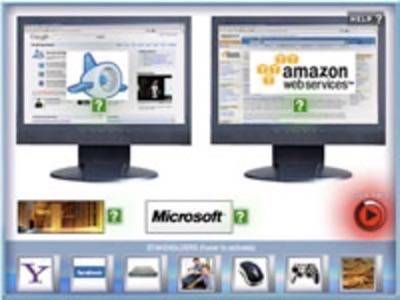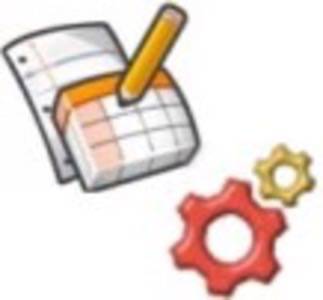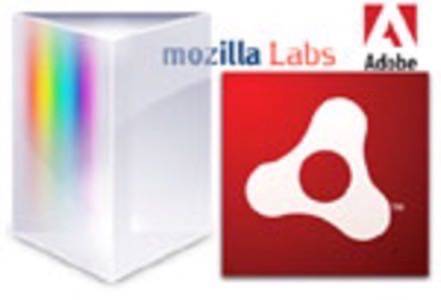Here are some of the highlights from the week’s Web Tech action on ReadWriteWeb. The big news was Google App Engine – we provided extensive coverage and analysis. Also this week we looked into further use cases for Twitter, we analyzed the pros and cons of offline access to web apps, as well as why we need web apps on the desktop. We gave you seven tips to make the best use of your RSS Reader, we advised on the best places to find open data, and we looked at business development 2.0 and marketing 2.0 trends.

For those of you reading this via our website, note that you can subscribe to the Weekly Wrapups, either via the special RSS feed or by email.
Web Apps
Google App Engine: History’s Next Step or Monopolistic Boondoggle?
The big news this week was the launch of Google App Engine, “a developer tool that enables you to run your web applications on Google’s infrastructure.” This will allow startups to use Google’s web servers, APIs, and other developer tools to build a web app on top of. Google clearly has the scale and smarts to provide this platform service to developers. However, it begs the question: why would a startup want to hand over that much control and dependence to a big Internet company? Check out Marshall’s analysis.

A new feature at ReadWriteWeb is an interactive game helping you to understand and contextualize web tech news in a fun way. This week we posted, via a new app from Impact Games, an interactive game that will let you model Google App Engine’s impact in the marketplace. You can play the game here.

Our other coverage:Google App Engine: Cloud Control to Major Tom; HuddleChat: Did Google Just Rip Off 37Signals? and Google Takes Down HuddleChat After Complaints About 37Signals Ripoff
Related:Red Dog: Microsoft’s Answer to App Engine and AWS?
How to Get Customer Service via Twitter
There has been a lot of talk lately of companies monitoring social media, be it Twitter, blogs, or social networking sites, for mentions of their company name and responding to customer service issues. Some of this interaction has been in the Twitter community, with Comcast being one of the more active participants as of late. Although in some cases, customers twittered their frustration after failing to receive the support they needed through traditional methods, in many cases, Twitter was the first place the customers vented their frustration, and then were surprised when they received a response from a support rep or company spokesperson.

Related:5 Ways to Find More Friends on Twitter and Twittermethis Is A Brilliant Marketing Experiment
Seven Tips for Making the Most of Your RSS Reader
RSS is a big deal, as anyone who’s subscribed to even a few feeds probably knows. Once you get past just a few feeds, though, it can quickly get overwhelming. RSS can leave you feeling inadequate, brain-dead and uninspired. Trying out new things will help you discover new, magical experiences, though. Letting go of the stress caused by any obligation to read everything will go a long way.

Here are seven tips for making the most of your RSS reader, from simple to more complex.
SEE MORE WEB APPS COVERAGE IN OUR WEB APPS CATEGORY
Web Trends
How Important is Offline Access, Anyway?
In today’s world, you’re never too far from an internet connection. In developed countries, broadband access is available in more places than ever, and even poorer countries have internet cafes sprouting up left and right. Modern web workers and business travelers even take extra precautions to maintain always-on connectivity – packing air cards in their laptop bags or buying laptops that already have built-in EVDO access.

Despite the broad availability of internet access, it’s the dead spots that have been pushing forward the need for offline access to web apps. For how can a web office suite like Google Docs or Zoho compete with desktop software if they become unusable when the internet connection disappears?
Why We Need Web Apps on the Desktop
Sarah Perez conclued in the above post that offline access is important now, but not as important as it once was. And that with the increasing ubiquity of Internet access, it is growing less important every day. However Josh Catone thinks there is an important distinction to be made between offline access to web apps (as Google Gears provides) and desktop access to web apps (as Mozilla’s Prism and Adobe’s AIR provide). The latter is a very important step in the evolution of web apps.

Where to Find Open Data on the Web
This week there was a story on Techmeme entitled “We Need a Wikipedia for data“. The article, written by X-Googler Bret Taylor, discussed the difficulty of finding open data sets on the internet, something which could spur innovation, allowing programmers to build new applications the likes of which have never been seen before. What was interesting about this story, in addition to, obviously, the concept of a Data Wiki itself, was the amazing and insightful commentary around this concept, not just on the blog, but all over the net, something which led to the discovery of some pretty good data sources that are already available.

A Guide to Business Development 2.0
At least once each day I get a call from someone trying to sell me outsourced development services. It’s difficult to not be frustrated with these calls and it is increasingly hard to be polite, because
they come so frequently. Yet, more than frustrated, I am just puzzled. Does this tactic still work? Who in this day and age would give business based on a cold call? These companies could definitely use a dose of business development 2.0.

Related:Marketing 2.0: Can Meebo Make it Real?
SEE MORE WEB TRENDS COVERAGE IN OUR TRENDS CATEGORY
That’s a wrap for another week! Enjoy your weekend everyone.





















